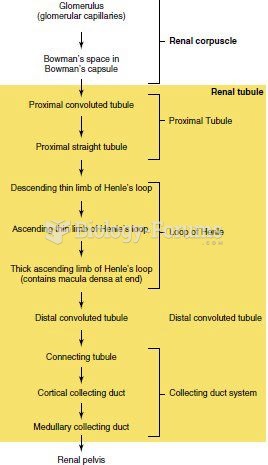|
|
|
If you could remove all of your skin, it would weigh up to 5 pounds.
The people with the highest levels of LDL are Mexican American males and non-Hispanic black females.
The first oncogene was discovered in 1970 and was termed SRC (pronounced "SARK").
The use of salicylates dates back 2,500 years to Hippocrates's recommendation of willow bark (from which a salicylate is derived) as an aid to the pains of childbirth. However, overdosage of salicylates can harm body fluids, electrolytes, the CNS, the GI tract, the ears, the lungs, the blood, the liver, and the kidneys and cause coma or death.
Many medications that are used to treat infertility are injected subcutaneously. This is easy to do using the anterior abdomen as the site of injection but avoiding the area directly around the belly button.







